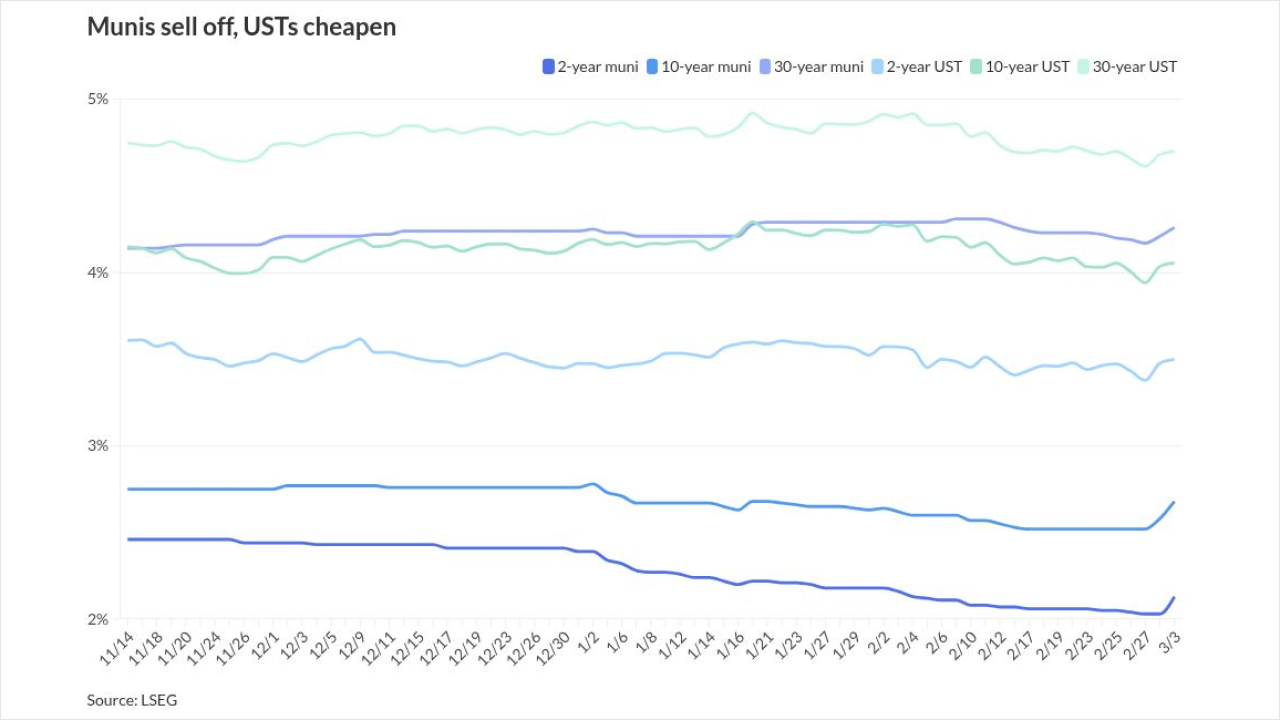BRADENTON, Fla. – The Kentucky General Assembly closed its annual session this week, approving a last-minute deal designed to reform the state’s ailing pension system.
Two bills approved by both chambers late Tuesday chip away at billions in unfunded liabilities that contributed to the state’s rating downgrades over the last two years.
Legislators also approved a pension reform bill sought by the city of Lexington and the unions for police and fire employees there, which Gov. Steve Beshear signed into law Friday.
State pension reform was an overarching theme for this year’s 30-day legislative gathering.
Beshear, who had threatened to call a special session if lawmakers couldn’t come to agreement, said the compromise he helped barter in the waning hours was also designed to address concerns of rating analysts.
The state has suffered downgrades and outlook revisions, in large part because of the state’s unfunded pension and health-care liabilities.
Two years ago, Moody’s Investors Service dropped the state’s issuer rating to Aa2 from Aa1, and maintained a negative outlook because of the state’s structural budget imbalance, depletion of reserves, weak and declining pension system funding, and a vulnerable economy.
In November, Fitch ratings downgraded Kentucky’s $7.6 billion of appropriation-backed debt to A-plus from AA-minus citing the state’s “poorly funded pension system,” along with reduced financial flexibility because of the economic downturn.
In January, Standard & Poor’s revised the state’s outlook to negative from stable while affirming its AA-minus issuer credit rating. “The outlook revision reflects our concern over pension funded levels, which have declined and are likely to continue declining due to lower-than-actuarially required funding of pension liabilities, and budgetary pressures associated with funding post-retirement benefits,” analyst John Sugden said.
After the General Assembly approved bills late Tuesday, Beshear said ratings were a major driver compelling Kentucky to act on pension reform and funding with the passage of Senate Bill 2 and House Bill 440.
“A downgrade in bond rating means it costs taxpayers more for public building projects, as it increases the borrowing costs,” he said, adding that the reform package creates funding to pay the state’s full recommended annual pension contribution without threatening key state services such as education and public safety.
“The looming pension liability threatened to gut funding for education and all other priorities,” Beshear said. “We all agreed we could not simply change our pension plan without paying for it.”
The reform measures will require the state to contribute the full amount recommended by actuaries to the pension system annually beginning in fiscal year 2015. The increased cost to fully fund the actuarially required contribution to the Kentucky Retirement Systems is estimated at $100 million per year from the general fund.
Reform measures include eliminating the defined-benefit plan for future state and local employees hired on or after Jan. 1, 2014. They will be offered a “hybrid cash balance plan” with a guaranteed 4% return on contributions.
Officials said the new hybrid plan provides state and local governments with improved predictability and stability for pension costs. It also applies to legislative and judicial pension plans.
The new structure allows for annual cost-of-living adjustments for retirees but only if the General Assembly prefunds the entire amount in the year the adjustment is made.
The companion funding measure, HB 440, is expected to generate nearly $100 million a year for ARC funding from various sources, most of which lawmakers believe will be nearly revenue neutral.
Those sources include a $10 reduction in the personal income tax credit to generate about $32.5 million annually, another $30 million will be captured through recent federal tax changes, and new technology and compliance efforts for tax collections that are expected to generate $37.4 million a year.
“The issue of public pension reform and the significant financial impact has cast a long shadow,” said Rep. Jeff Hoover, R-Clinton and house minority floor leader. This “resolution is a monumental achievement for our Commonwealth. While it may not satisfy all concerns, it does save Kentucky taxpayers more than $10 billion over the next 20 years.”
The six retirement plans run by the state had a combined actuarial accrued liability of $40 billion, and an unfunded liability of $21.35 billion as of June 30, according to Kentucky’s 2012 audit.
While the teachers’ retirement system is not included in the reforms taken by lawmakers this week, the five plans subject to the new law had a combined unfunded liability of $9.07 billion. The law covers non-hazardous and hazardous duty state and county employees, state police, the judiciary, and legislators.
The plan for 118,163 non-hazardous vested employees alone accounts for the largest liability at $8.3 billion, and is only 27% funded.
In previous years, lawmakers have addressed reforms to the Teachers’ Retirement System, which included pre-funding medical costs. As of June, the teachers’ pension system covered 128,713 vested participants and had an unfunded liability of $12.3 billion.
During this year’s session, state lawmakers also acted on a request from the city of Lexington to implement its pension reform plan for active and retired police and fire employees.
Beshear signed House Bill 430 on Friday, enacting the union-backed changes.
“The leaders of Lexington took some common-sense steps to shrink the city’s unfunded pension liability and create a reasonable path forward to ensure these public servants will get the benefits they earned,” Beshear said.
The plan lowers annual cost-of-living adjustments, increases contributions from active and future employees, and institutes a remodeled pension plan for new employees. It also cuts the pension fund’s $296 million unfunded liability to $161 million, and eliminates the need for the city to issue $34 million of pension obligation bonds this year to cover the minimum required payment.
“This was not easy, but in the end we have a plan that finally puts our pension fund on sound footing, ensuring that it will continue to support the retirements of Lexington’s police officers and firefighters for decades to come,” said Capt. Chris Bartley, President of Local 526, International Association of Fire Fighters.
The unions said an important factor underpinning the deal for them was the fact that the city does not participate in Social Security so they receive only a portion of those benefits upon retirement.
Historically, the city made contributions of about $11 million a year, though costs were rising to the point where the city needed to contribute $29 million a year. Under the new plan etched in law, the city’s annual payments would be a minimum of $20 million per year. The contribution could be higher if necessary.
The resolution to the city’s pension problem, which had mounted for years, occurred in a short period of time in recent months after the city hired Public Financial Management Inc., and a small group of stakeholders came together to hammer out a consensual agreement.
“Our police and fire pension system was by far our city’s biggest financial challenge,” said Mayor Jim Gray. “We were determined to stop kicking the can down the road, to find a solution now.”
Lexington, population 300,000, is the only city in Kentucky that has its own police and fire pension plan, created when Lexington and Fayette County merged in 1974.
As a result of the consolidation, the state retained control over the benefits that were offered, while the city was required to fund them.





